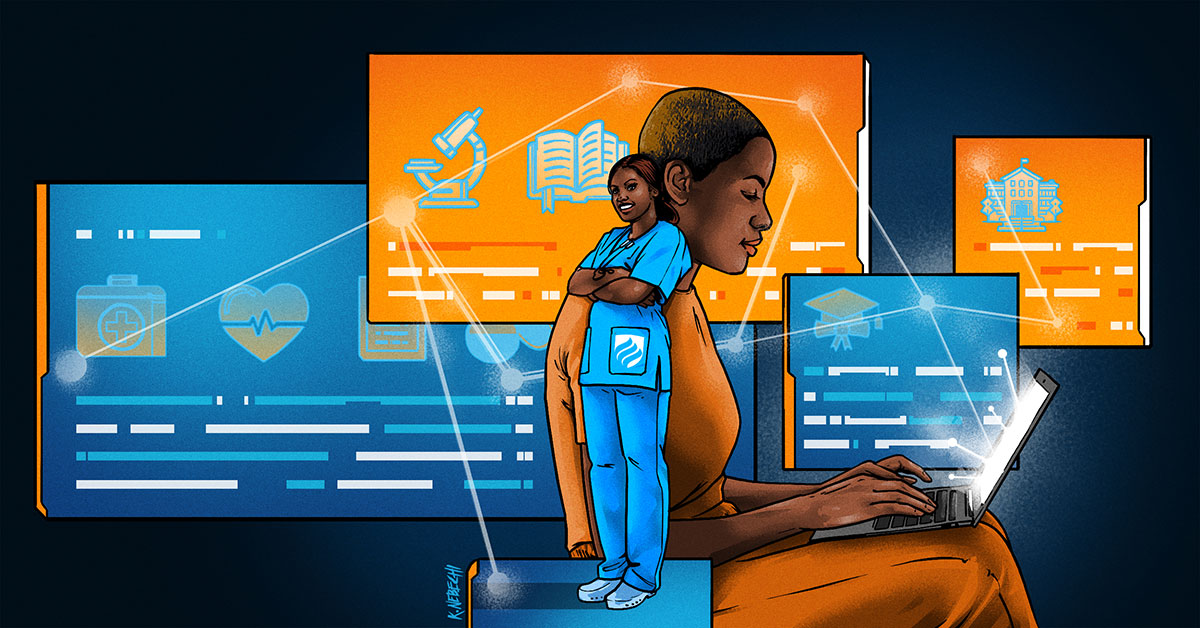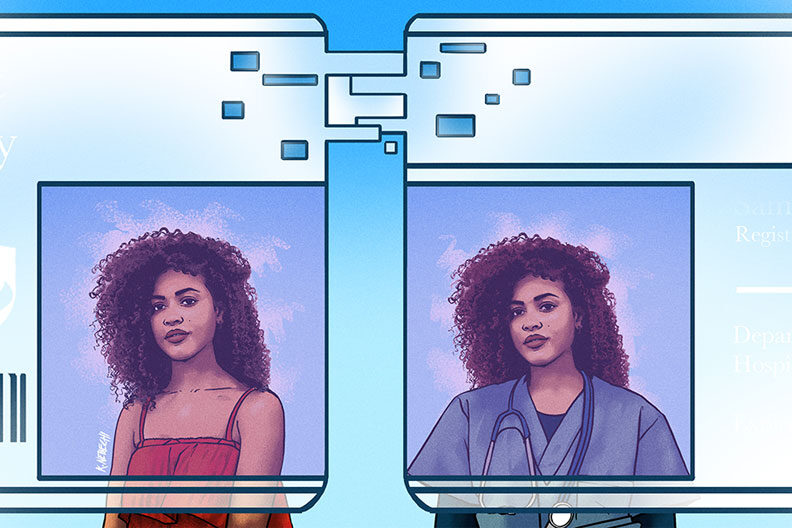How to Make the Transition to Nursing Practice
GRADUATE STUDIES | 3 MIN READ

In the past 18 months, the importance of nurses has been evident in almost every corner of the country. And there just aren’t enough. A shortage that was already frustrating for employers before the COVID-19 pandemic has ballooned to almost untenable levels.
For many folks outside of medicine, the COVID crisis has awakened or amplified the feeling that perhaps now is the time to transition into health care. But it can be difficult to imagine pivoting from a job in business, or education, or communication and becoming a nurse.
Where do you even start?
First, learn what you can about what it actually means to be a nurse. See if you can shadow a nurse for a day—or even longer—to find out how they spend their time, what their daily tasks are like and the pace at which they have to operate.
Nurses work in a variety of settings, and there’s no need to decide now what area you will want to pursue, but it is worth thinking about. Are you looking for a 9-to-5 job? Do you need flexibility? How much of your day do you want to spend with patients vs. doing paperwork?
Fortunately, there are many programs out there to guide career-changers into the challenging and rewarding world of nursing. Returning to school can take anywhere from one to four years, depending on the program and whether you attend part- or full-time.
Before you decide on your route, consider whether you will be able to hold a job while you are in school. Budget for tuition and, potentially, lost wages during this time. Also, consider how much you will be able to earn upon graduation.
Finding Education Programs to Become a Nurse
Some students opt for a nursing diploma or an associate degree in nursing, which can be completed relatively quickly. Others earn a second bachelor’s degree in nursing or opt for an accelerated bachelor of science in nursing program.
Meanwhile, a master’s degree program, such as a Master’s Entry in Nursing Practice, lets students bridge the gaps from their bachelor’s curriculum to their master’s, covering the skills they need to become a registered nurse while they earn their advanced degree.
These programs typically last one to two years, with an intense workload. Before you can practice, you will need to pass the National Council Licensure Examination (NCLEX). But don’t worry! You’ll have built a strong foundation while in class and during clinical practice.
Earning an advanced degree can make you more appealing to employers, as an increasing number are trying to ensure that their nurses have both a breadth and depth of knowledge—understanding not just the medical side of nursing, but also how to communicate with patients and colleagues and navigate data, trends and informatics.
Transition to Nursing at Elmhurst University
The Master’s Entry in Nursing Practice (MENP) program at Elmhurst is designed specifically for students with bachelor’s degrees in other fields who want to transition into nursing. Request more information by filling in the form below!




